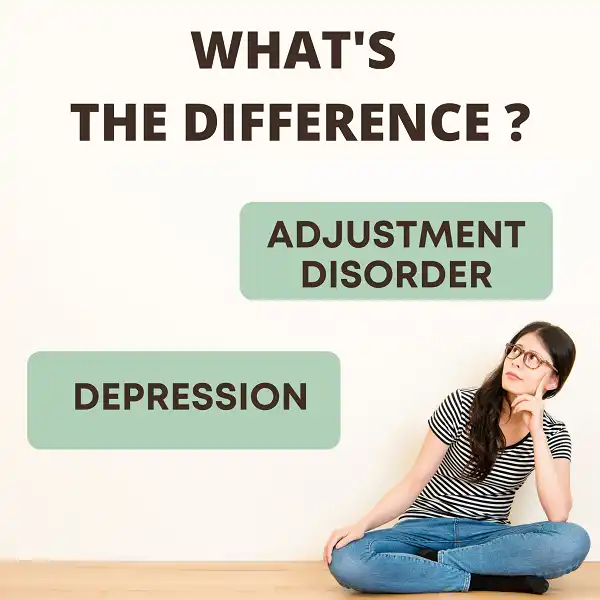When trying to figure out if you are experiencing depression or an adjustment disorder, it can be helpful to understand the difference between the two. Adjustment disorders typically occur within three months of a stressful event, while depression can occur at any time. Symptoms of adjustment disorder include disturbed thoughts and mood, whereas symptoms of depression include depressed mood most of the day, decreased interest in activities, changes in weight or appetite, and difficulty sleeping.
What is Adjustment Disorder?
Adjustment disorder is a mental health condition that can develop in response to a significant life event or change. While it is normal to experience some distress in response to a major change, those with an adjustment disorder may have difficulty coping and may develop symptoms of depression, anxiety, or both. In some cases, adjustment disorder can lead to problems with work, school, or personal relationships. Treatment for adjustment disorder typically involves counseling or therapy to help the individual learn healthy coping skills. Medication may also be prescribed in cases where symptoms are particularly severe.
What is Depression?
Depression is more than just feeling sad. It is a serious medical condition that can have a profound effect on every aspect of a person’s life. Depression causes a range of symptoms, including changes in mood, energy levels, sleep patterns, and appetite. It can also lead to physical problems such as headaches and chest pain. Depression can make it difficult to concentrate, remember details, and make decisions. People with depression may also experience feelings of worthlessness, hopelessness, and guilt. In severe cases, depression can lead to thoughts of suicide.
Difference between Adjustment Disorder and Depression
- Adjustment Disorder (AD) and Depression are two psychological conditions that can often be confused with one another. Both AD and Depression share some similar symptoms, such as feelings of sadness, guilt, or worthlessness.
- However, there are some key differences between the two disorders. Adjustment Disorder typically occurs in response to a specific stressful event, such as a job loss or divorce.
- The symptoms of AD usually last for less than six months and will eventually resolve on their own. In contrast, Depression is a more chronic condition that is not necessarily tied to any one event. The symptoms of Depression can last for months or even years, and professional treatment is often necessary to manage the condition.
Conclusion
Depression is a mood disorder that causes feelings of sadness and hopelessness that can last for weeks or months. Symptoms include changes in sleep, appetite, and activity levels. Depressed people may also feel worthless and have trouble thinking clearly or making decisions. Adjustment Disorder is a condition that develops within three months of a stressful event. It’s characterized by problems in emotional adjustments, such as anxiety, depression, and disturbance in conduct. Individuals with Adjustment Disorder often have difficulty coping with their stressors.


